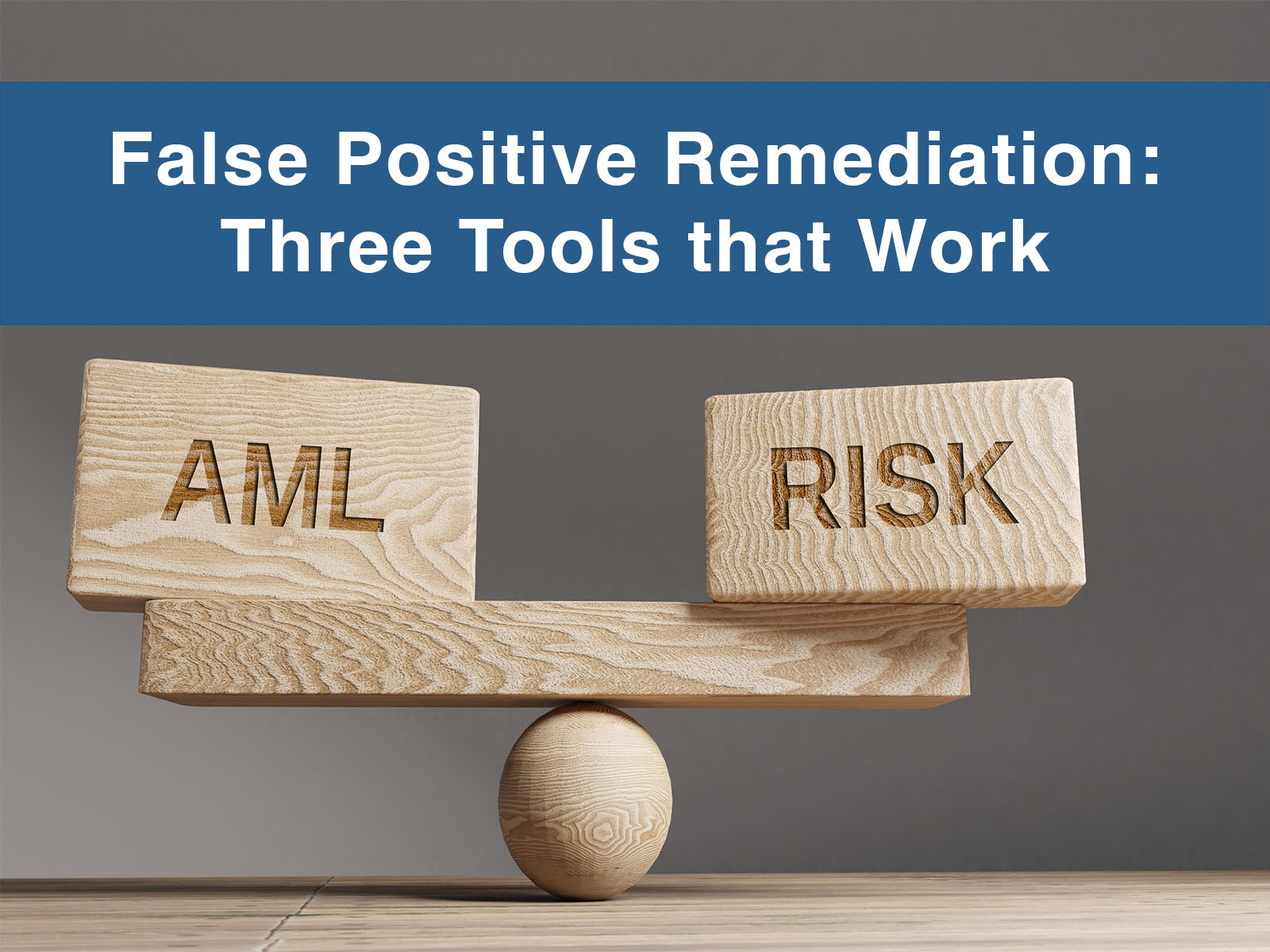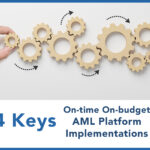
RegTech platforms should help solve your false positive problems—here’s how…
By Frank Cummings, CEO of AML Partners
A wide range of financial institutions seek us out to learn about false positive remediation on RegTechONE, our RegTech platform for AML Compliance and GRC. These institutions—and very likely yours, as well—often drown in false positives.
False positives bedevil Compliance teams both in transaction monitoring and in sanctions screening (and broader AML screening). We work to help our clients gain clarity on which solutions remediate which specific problems.
On our RegTechONE platform, we home in on three key tools for false positive remediation. These include whitelisting, de-deduplication, and secondary evaluation. The following describes the core uses for each:
Whitelisting false positives in transaction monitoring
For transaction monitoring, whitelisting provides the best remediation of false positives. Whitelisting involves a pre-determination that a case does not require investigation, and therefore it may be waived automatically.
Whitelisting provides a good solution when a customer well known to the bank engages in predictable legal transactions that still might trigger a specific rule. Because the institution knows the customer and its predicted behaviors, the institution can whitelist that customer for that specific rule. (To learn more about sanctions screening and lists from authorities like the U.S. Treasury Office of Foreign Asset Control, click here.)
When this happens, our RegTech platform creates the cases, but it automatically waives the whitelisted cases. These waived cases remain in the record, and they can be audited at any time. With whitelisting, the institution remains compliant without having to work the same false positive cases over and over again.
To be clear, institutions should reserve whitelisting for customers they know well and who warrant high confidence of false positives for a certain rule. Institutions who leverage whitelisting to best effect will also periodically reassess their whitelisting. A part of this regular due diligence includes periodic audits. An auditor selects a portion of the whitelisted cases to confirm that they meet the institution’s policies regarding whitelisting of false positives.
Deduplicating false positives in sanctions screening
While transaction monitoring requires whitelisting, sanctions screening benefits from deduplication. Deduplication delivers a major reduction in false positives both in sanctions screening and related types of AML screening.
False positives in screening occur because so many people share names, either exact or near matches. This makes sense given that the global population exceeds eight billion people. The false-positive problem continues to grow because the various sanctions-lists authorities are adding names all the time.
If a name on the sanctions list (or other AML-related resource) closely matches the name of a customer, automated screening will generate a hit. For customers well known to the bank and well vetted during onboarding, this hit can be accurately predicted to be a false positive. This is when deduplication proves to be a crucial tool in false positive remediation.
With deduplication, when the first hit occurs, the institution works the case and waives it. When that same false-positive hit occurs again, our RegTechONE platform automatically waives it because the hit was previously waived. Via a proprietary algorithm, RegTechONE determines what new hits are actually duplicates of worked-and-waived cases.
With deduplication technology, institutions work false positive screening hits a single time. This approach provides a massive improvement in remediation of false positives.
Secondary evaluation for false positives in both screening and transaction monitoring
Secondary evaluation provides false positive remediation for both screening and transaction monitoring. Secondary evaluation describes the process of applying more information from the customer record against a hit to see if they truly match.
While eight billion people share a lot of the same names, they don’t also share birth dates, addresses, phone numbers, countries of residence, and so on. Adding additional points of comparison beyond the name can quickly distinguish between valid hits and false positives.
The RegTechONE platform automatically conducts secondary evaluation. When the system’s secondary evaluation determines a hit to be a false positive, it creates a case and waives it. This process can be configured for both sanctions screening and for transaction monitoring. And all waived cases remain available for audit.
The right RegTech delivers crucial false positive remediation
The right RegTech makes a world of difference in false positive remediation. Actually, the right RegTech makes a world of difference in virtually every AML Compliance and counter-terrorism process.
Today’s best RegTech solutions are not black-box mysteries but rather highly flexible systems that institutions leverage for efficient effective Compliance. Remediating false positives should be Job 1 of any system that promises to enhance effectiveness and efficiency.
In 2024 and beyond, financial institutions should never feel like they are drowning in a sea of false positives. AML solutions like the RegTechONE platform can deliver whitelisting, deduplication, and secondary evaluation. Together, these transform the false positive problem into a manageable and auditable Compliance victory.
Learn more about false positive remediation
If you’d like to learn more, contact us to schedule a conversation. Learn how your institution can benefit from false positive remediation on the RegTechONE platform. Also, check out these other blog articles on this important topic:

